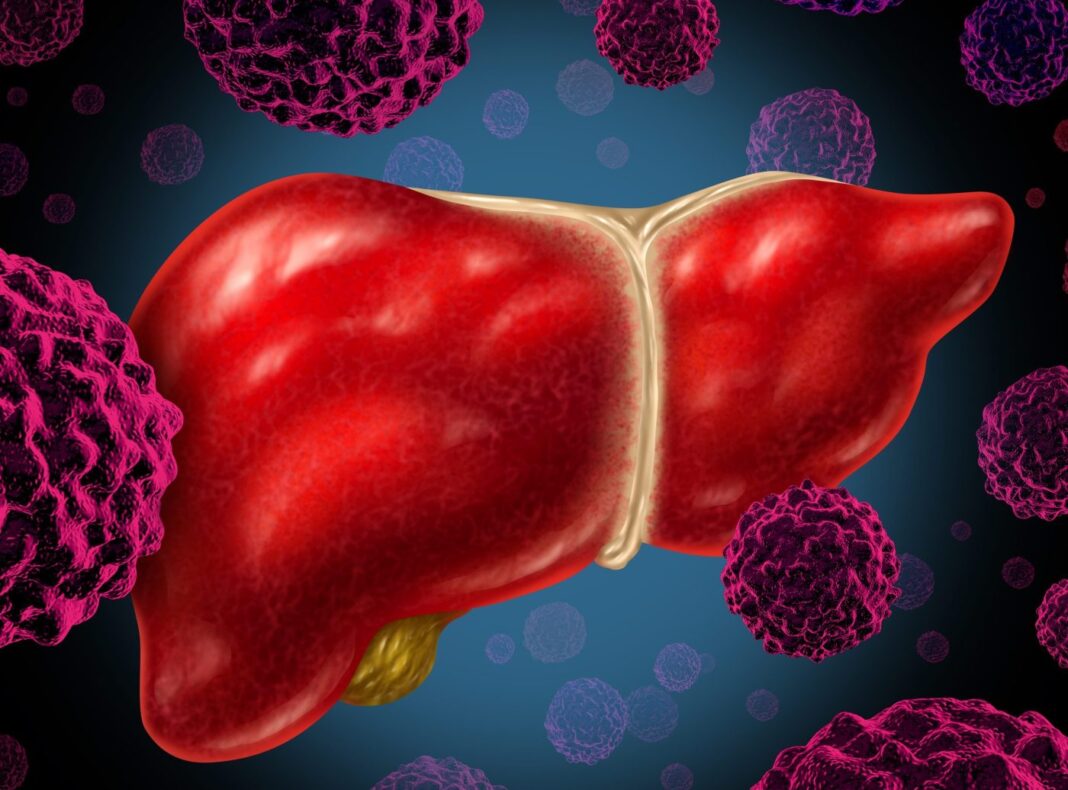Researchers at Massachusetts General Hospital (MGH) and Brigham and Women’s Hospital (BWH) have used mRNA nanoparticles to reprogram the tumor microenvironment of liver cancer and restore the function of the p53 master regulator gene, a tumor suppressor that is mutated in different cancer types. The researchers demonstrated that when used in combination with immune checkpoint blockade (ICB), the p53 mRNA nanoparticle technology—which is similar to that used in COVID-19 vaccines—not only induced suppression of tumor growth but also significantly increased antitumor immune responses in hepatocellular carcinoma (HCC) laboratory models.
“The reprogramming of the cellular and molecular components of the tumor microenvironment could be a transformative approach for treating HCC and other cancers,” said co-senior author Jinjun Shi, PhD, at the Center for Nanomedicine at BWH, who developed the platform with MGH liver cancer biologist and co-senior author Dan G. Duda, DMD, PhD. “By using this new approach, we’re targeting specific pathways in tumor cells with mRNA nanoparticles. These tiny particles provide the cells with the instructions to build proteins, which, in the case of HCC, delayed tumor growth and rendered the tumor more responsive to treatment with immunotherapy.”
The team described its development in Nature Communications, in a paper titled, “Combining p53 mRNA nanotherapy with immune checkpoint blockade reprograms the immune microenvironment for effective cancer therapy,” in which they concluded, “If successfully translated, the mRNA nanotherapy-based p53 restoration strategy could be transformative and impactful in cancer immunotherapy.”
HCC is the most prevalent form of liver cancer, characterized by a high mortality rate and “dismal prognosis” for patients, the authors wrote. Immune checkpoint blockers, a new class of drugs that enable the body’s immune system to recognize and attack cancer cells, have shown efficacy in treating HCC, but still, most patients do not benefit. To overcome this resistance to treatment, multiple strategies are being developed to improve ICBs by combining them with other existing therapies, such as anti-VEGF drugs and radiotherapy. However, even these approaches are expected to benefit only a small number of patients, creating an urgent need for new combination treatments. “Such combinations have been shown to improve anti-tumor efficacy in animal models and increase the survival of patients in clinical trials,” the team commented. “However, an increasing majority of HCC patients show no responses, and thus, new combinatorial strategies are still desperately needed.”
The tumor suppressor p53 is one of the most frequently mutated genes in a wide range of cancers, and is linked with tumorigenesis, tumor progression, resistance to anticancer therapy, and poor prognosis, the scientists said. “Beyond cell autonomous tumor-suppressive effects, increasing evidence indicates that p53 protein can also regulate the immune tumor microenvironment (TME) by modulating interactions of tumor cells with immune cells,” they noted. “Compelling evidence suggests that p53 dysfunction leads to immunosuppression and immune evasion.” The ability to restore p53 function might thus offer opportunities to reverse immunosuppression of the TME and improve the antitumor efficacy of ICB therapy.
Encouraged by the success of mRNA in COVID-19 vaccines, Shi decided to apply a modified form of the mRNA nanoparticle technology to target cancer cells. “The use of synthetic mRNA has attracted tremendous attention, as exemplified by the recent clinical approval of COVID-19 mRNA nano-vaccines and the clinical trials of a number of mRNA nanotherapeutics for diverse diseases including cancer,” the investigators noted. For the newly reported studies, Shi teamed up with Duda, whose MGH lab had already created sophisticated animal models to analyze the tumor microenvironment of liver tumors in response to immunotherapy.
The group developed and optimized an mRNA nanoparticle strategy to restore loss of function of p53, and reprogram the TME. Their experiments and results highlighted evidence suggesting that p53 regulates the tumor microenvironment by modulating the interaction of cancer cells with immune cells as part of ICB therapy.
“In our previous work we had developed nanoparticles to target CXCR4—a chemokine receptor expressed by liver cancer cells—and selectively co-deliver drugs such as kinase inhibitors,” explained Duda. “We’ve now adapted this platform to use CXCR4 as a kind of zip code to selectively target the tumor with nanoparticles encapsulating therapeutic mRNAs. When we combined this nanomedicine with anti-programmed death receptor 1 (PD-1) antibodies, a standard immunotherapy for HCC patients, it induced global reprogramming of the tumor microenvironment and tumor response by restoring p53 expression.”
“This unique combinatorial strategy safely and effectively inhibits tumor growth in vivo, while prolonging survival and reducing ascites and metastases,” the scientists stated in their report. “…We find that combining CXCR4-targeted p53 mRNA nanoparticles with anti-PD-1 therapy effectively induces global reprogramming of cellular and molecular components of the immune TME. This effect results in improved antitumor effects compared to anti-PD-1 therapy or therapeutic p53 expression alone … Thus, combining p53 mRNA nanotherapy with ICB immunotherapy could become a transformative approach for the treatment of HCC and potentially other cancers involving p53 deficiency.”
The next step for the team is to transfer their research from animal models to patients in a clinical trial. “Scientists have struggled for decades to find an effective way to target the tumor suppressor pathways,” Shi noted. “Our proof-of-concept study is an exciting development that clearly shows that p53 mRNA nanoparticles in combination with ICB not only works, but also could make a big difference by reversing immunosuppression in HCC and potentially other cancers.”


